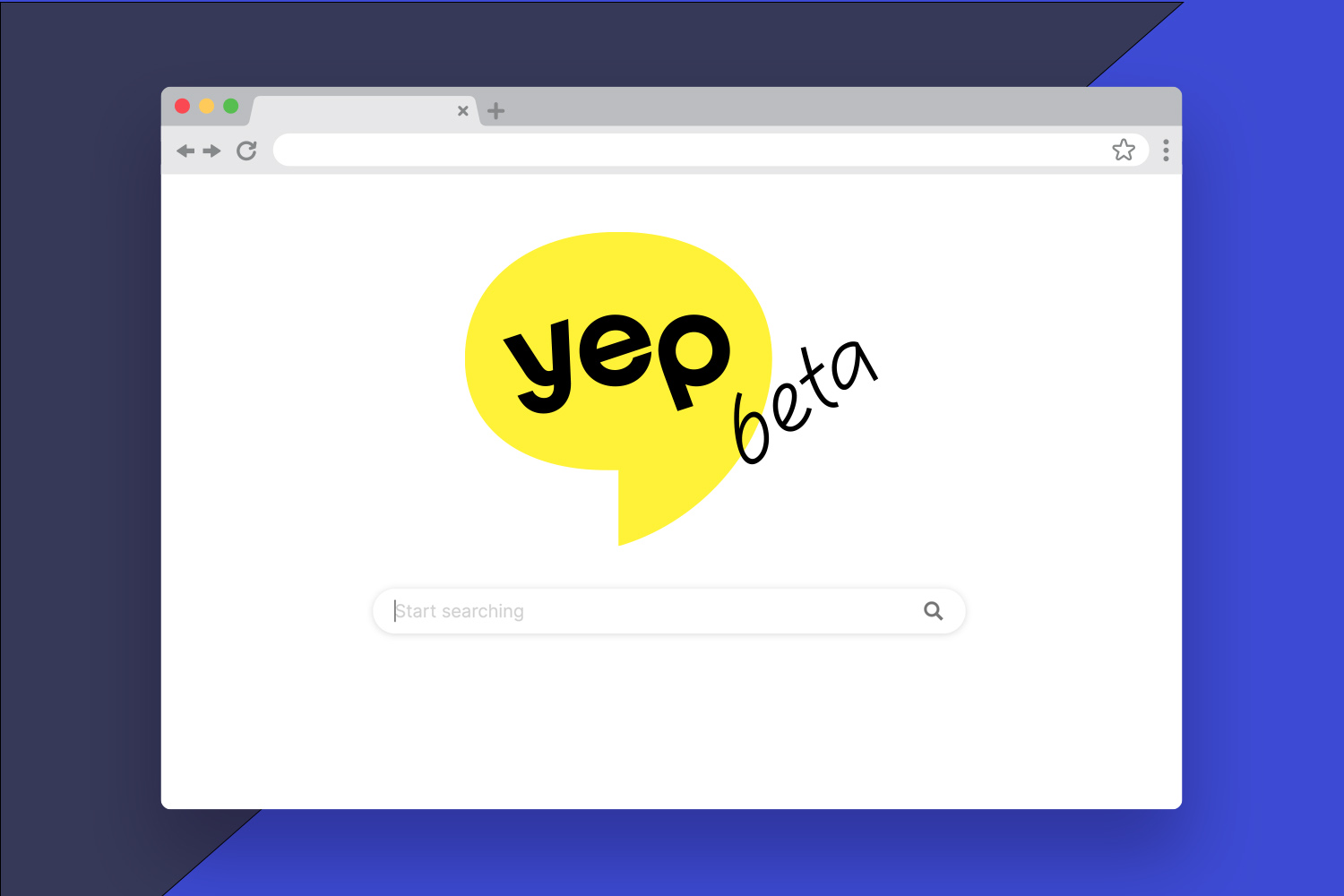Yep, You Heard that Right, Ahrefs Launches New Beta Search Engine
Ahrefs has long been one of the SEO giants, offering a wide array of optimisation and auditing services that help marketers construct new digital marketing strategies and rank above their competitors with the likes of Google; but now, it’s launched its own search engine. Not content with being an SEO colossus, Ahrefs is looking to give Google and Bing a run for their money – but will anyone use it, and what can we expect from this new search engine?

The new search engine, called Yep, is set to eventually be available in almost every country and in almost every language. So far, Ahrefs has spent over $60 million on data centres for Yep, and plans to open a new data centre in the US by the end of this year. The search engine was announced back in 2019, but the beta version is now finally up and running. So, what does this mean for you as a marketer, and what does it mean for search engines as a whole?
How Yep will impact digital marketing strategies
As a marketer, the main thing you’ll be concerned about with Yep is how it will impact your digital marketing strategies moving forwards. You’re likely used to trying to please Google, and your SEO campaigns will probably be moulded around this… so what about if you want to target Yep? Well, Yep is designed to work very differently from Google. It was built from the ground up and is set up to reward marketers and content creators and protect the privacy of users.
In a nutshell, if you craft high quality content that is accurate and informative, Yep will reward you with the profits it makes from ads. In this sense, Yep will work in the same way as YouTube, Instagram, and Facebook. Where Google keeps the majority of the revenue it generates from ads, marketers and content creators often rely on affiliate links and paywalls to recoup some of the money they need to enable them to continue to craft content. This is what leads companies such as Wikipedia to ask its users for donations.
Under the Yep model, if the search engine were to generate as much revenue from ads as Google does, Wikipedia could earn potentially billions, killing the need for them to ask for donations. This means as a marketer, if you create a well-versed, highly knowledgeable content strategy, you could be financially rewarded for it.

Looking to optimise your online presence both now and in the future?
Get in touch with our Brains to find out more about how we can help you optimise and perfect your digital presence.
Where is Yep at now?
As of right now, Yep is still in its beta stages. It was announced in 2019 and the beta version was revealed recently, but there’s still a long way to go before this fledgling search engine is ready to take on the big boys. Yep has set out a roadmap to keep users informed of what’s happening right now.
They said:
“We think it’s important that you know what we’re working on right now, as well as what we’re focusing on next.
Now
Creating a great search experience is our top priority. We’re working on:
- Improving search result quality for text search, image search and News
- Improving local search
Next
When we’re happy with the quality of search results, advertising and revenue share will be added. Right now, there’s no revenue to share.”
So, there’s no revenue to reward creators with just yet, and there are a number of issues that have been picked up so far during the beta stage.
Firstly, the UI is somewhat lacking. Some might call it minimalistic, but others might say it looks unfinished. Either way, it doesn’t look quite as sleek as Google, but it’s not as clunky as Bing. One nice feature it does have is a top level bar that pulls information from Wikipedia where it deems it relevant, but it could be argued that this is similar to the featured snippet on Google which Ahrefs berated Google for on the basis of it hoarding site visitors.
Another chink in the armour is the fact that there isn’t a dark mode just yet. In fact, the only customisation you can do is to change the search language. That being said, Ahrefs is focussing on securing reliable matches, so further UI development could be coming later down the line. As of right now, the search engine is still in its infancy, but it shows promise, as our SEO Brain James explains.
“Although no search engine has managed to topple Google just yet, that doesn’t mean Google is perfect. There are numerous loopholes that mean the most relevant content isn’t always the content that ranks, and this can be frustrating for both users and content creators
“If Yep can close these loopholes whilst incentivising creators to continue to push authentic and reliable content, there’s every chance it could give Google a run for its money.”
– James Speyer
Subscribe to our free monthly newsletter.
What makes Yep different to Google?
So, what exactly makes Yep different to Google, or any other search engine for that matter? Well, it’s main USP is that they retain 10% of profits made from ads and distribute the remaining 90% amongst other content creators; but this isn’t the only difference.
Audience hoarding
Dmitry Gerasimenko, the CEO of Ahrefs, has stated that he believes the current format Google is using is bad for creators and bad for users. His first gripe is that Google hoards website visitors by showing scraped content. For example, when you type in a question, it will likely be answered in a featured snippet at the top of the search results, so unless you want a more detailed answer, you don’t actually need to visit a website. This decreases the chance of a conversion or even raising brand awareness for whoever is at the top, and in turn, the chance to earn money is reduced. Yep aims to solve this issue.
Private control
There’s no denying that Google controls what users see when they enter a search term, and that it’s relatively easy to manipulate the system to get to the top. Whilst Google is trying to crack down on this with each new core update it releases, the reality is that the most relevant content isn’t always the content that makes it to the esteemed #1 position. As a marketer, if you’ve pored over your encyclopaedic content for hours or even days, only to find a much less qualified author has made it to the top, this can be understandably frustrating.
Imagine you spend years searching for a Shadowless Charizard card, only to be beaten to it by a novice collector who only wants the card for its reputation, without understanding what it means to a dedicated collector like yourself. Worse still, they only get the card because they found loopholes that allowed them to cheat the system. Pretty annoying, huh? Well, the same thing is happening with larger search engines. Dedicated and knowledgeable creators aren’t always fairly rewarded thanks to privatised access and gate-kept content, but Yep seeks to admonish this.
Inspire better content
One of the main goals behind Yep is to give the power back to content creators and encourage higher quality content that aims to inform users rather than just sit at the top of the search results. The incentive to do this is with the 90% ad share payback to creators, which Ahrefs hopes will encourage more innovative content campaigns.
There’s enough to differentiate Yep from Google, but is it enough to get it to the top spot as a serious search engine competitor?
Will Yep ever compete with Google?
Yep’s plans sound inviting, and on the surface, it seems like this browser could be the next big search engine, but will it really be able to compete with Google? As it stands, no other search engine has been able to topple Google from its throne, and Lord knows many have tried. Bing has been at it for years and at one point even tried to incentivise creators in the same way Yep is, but it ultimately failed.
Sceptics say that the only way to beat Google is to produce better results for the user, but given the length of time Google has been in the game and how much of the online space it dominates, the question of whether Yep can actually pull it off remains. That being said, the mere arrival of Yep could be enough to trigger new digital marketing strategies across all search engines that focus less on algorithms and more on honest, accurate content that users will benefit from.
Related Services
Who we are
The Brains is an award-winning digital marketing agency, consultancy and training provider in London.
Our Brains are experts in their field, helping companies grow faster, generate leads and overtake competitors.
What we do
Our Brains can help you with everything from ongoing marketing to training up your internal teams.
Give us a call to discuss your needs.

